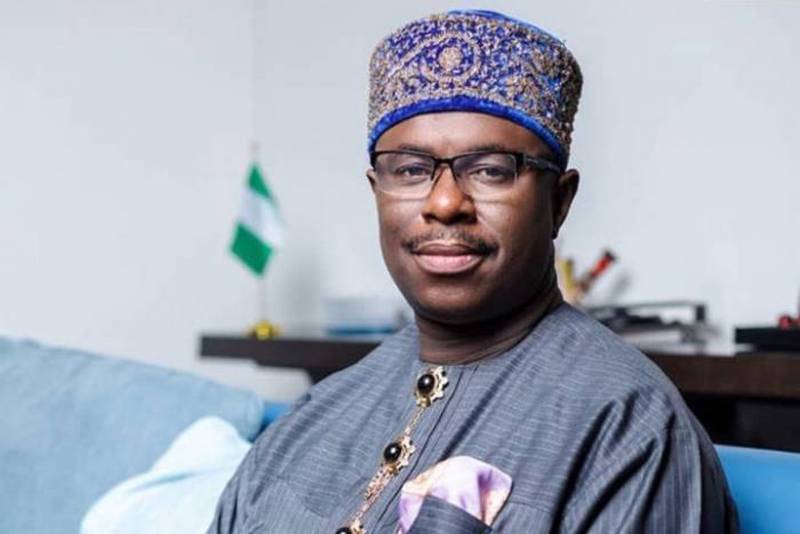When Their Lordships Bicker
By Kazeem Akintunde
Fourteen Justices of the Supreme Court few days ago wrote to the Chief Justice of Nigeria, Ibrahim Tanko Mohammed, to highlight the rot in the Judiciary, particularly at the Apex Court, after several attempts to find a lasting solution to the crisis internally failed. The simmering crisis has been on since last year, and their Lordships, after being pushed to the wall with no solution in sight, decided to write a formal memo to the CJN. It soon finds its way to the social and mainstream media.
The main issues put forward by the justices in their letter centered on the welfare of the Justices and the entrenchment of a conducive environment both in the office and at home. In the internal memo, which has become public property, the justices complained of non-replacement of poor vehicles; accommodation problems; lack of drugs at the Supreme Court clinic; epileptic electricity supply to the Supreme Court premises; increase in electricity tariff; no increase in the allowances for diesel; lack of internet services to residences and chambers and poor take-home pay that could no longer take them half way.
The angry Justices wrote: “Your lordship received and ignored these demands since 24th March 2022. In the past, justices were nominated to attend two to three foreign workshops or training per annum with accompanying persons for reasons of age. Since your Lordship’s assumption of office, Justices only attend two workshops in Dubai and Zanzibar. They were not accorded the privilege of travelling with accompanying persons as was the practice. Your Lordship totally ignored this demand and yet travelled with your spouse, children, and personal staff. We demand to know what has become of our training funds; have they been diverted? Or is it plain denial? Your lordship may also remember that the national assembly has increased the budgetary allocation of the Judiciary. We find it strange that in spite of the upward review of our budgetary allocation, the Court cannot cater to our legitimate entitlements. This is unacceptable!”
Many Nigerians, to say the least, were scandalized when the memo hit the social media. They could not believe that the Nation’s temple of Justice could be tainted with allegations of mal-administration with a tinge of corruption allegations. Were the Justices given ‘Tokunbo’ SUVs or brand new ones? What actually happens to foreign workshops approved yearly for their Lordships but which have since dwindled since the assumption of office of the CJN? Has he been traveling with his wife and children as alleged by the Lordships while denying them the benefit of travelling with an aide of their own?
However, the Nation was not kept in suspense for long as the CJN, through his media aide, Ahuraka Yusuf Isah, gave a detailed response to the memo from the Justices and it was also splashed on the pages of newspapers and on the social media. The CJN said he had managed the resources at the disposal of the apex court judiciously and that there was nothing to hide. The statement read: “The Chief Justice of Nigeria, Hon Justice Ibrahim Tanko Mohammad would wish to confirm receipt of a letter written and addressed to him by his brother Justices of the Supreme Court Bench. Judges in all climes are to be seen and not heard, and that informed why the CJN refrained from joining issues until a letter, said to be personal, is spreading across the length and breadth of the society. This was akin to dancing naked at the market square by us with the ripple effect of the said letter.
“The Supreme Court definitely does not exist outside its environment – it is also affected by the economic and socio-political climate prevailing in the country. Besides that, the Apex Court has, to a larger extent, been living up to its constitutional responsibility. When a budget is made, it contains two sides, that’s the recurrent and the capital, yet the two are broken down into items. The Federal Government releases the budget based on the budget components. And it’s an offence to spend the money meant for one item for another.
Take, for instance, the Supreme Court budgeted this year to re-roof and rehabilitate its complex built over 30 years ago and that is being done. The work on the extension of the complex is near completion, the esthetic lawns and cleanness of the perimeters are being well kept, and security and water supply are adequately provided for his brother Justices in their offices and residences. During the period of the pandemic, profound and extra-care was maintained to avoid causalities among them as well as the staff generally. It would have amounted to an act of irresponsibility to divert money meant for the above for otherwise.
“The accusation so far, in summary, is that more or all ought to have been done and not that nothing has been done; which is utopian in the contemporary condition of our country. “Before eight new Justices were appointed in 2020 onto the Apex Court bench, there was no additional budget to provide new chambers with equipped library, legal assistance, residential accommodations, and logistics for them. The Apex Court has to make do with the resources at its disposal to meet their needs over time. All the Justices of this Court has at least a legal assistant, except some may opt for more. One of the CJN’s legal assistants (now Justice Aina) was appointed to Abuja FCT High Court last month, while another (Barr. Ramatu) died three months back. Generally, the Judiciary is looking up to the recruitment of more legal assistants and other supporting staff this year. Besides, two Supreme Court Justices died within the period under consideration. Both the four retirees and the two departed cost the court some funds in the forms of gratuities and allowances.”
With the response from the CJN, many Nigerians, rightly concluded that the rot in all spheres of our national life has, finally, caught up with the Judiciary. Though there have been allegations of corruption against some judges in the past which have been dealt with either through demotion or outright dismissal, many are now convinced that the nation’s Judiciary is also not immune to the rot in the system. Indeed, what do you expect when many of the Justices earn less than N600, 000 monthly and you expect them not to compromise in giving justice to the highest bidder?
How can we complain of delay in the dispensation of Justice when the Justices of the Supreme Court are now expected to close by 4 pm going by the directive of the Chief Registrar, who in a recent circular informed the justices that due to the prohibitive cost of Diesel, the Apex Court should be shut down by 4 pm as he could only guarantee the availability of electricity except between 8 am and 4 pm daily. Should the Justices resort to using candles to write their judgment when the Registrar shut down the generator by 4 pm? Again, the crisis in the power sector has shown that we are still not serious about developing the country. How can a sane country with leaders who travel all over the world and know the importance of electricity, be happy that we are still generating less than 10,000 megawatts while we can distribute less for a country with a population of over 200 million?
In essence, if the directive from the Chief Registrar to shut down electricity supply to the Apex Court by 4 pm becomes operational, cases at the Supreme Court would take ages to be adjudicated upon. Even when the directive was not in place, a land matter between the Federal University of Agriculture, FUNAAB, Abeokuta, and its host communities is still awaiting determination at the Apex Court after several years.
Though the apex court has been receiving N110 billion yearly since 2018 despite the increase in its size and responsibilities, Lawmakers, of recent, ensured that there was an increase in the budgetary allocation to the Judiciary but it has not reflected or led to an improved welfare or better work environment for the Justices. The annual budget, however, is not always regularly cash-backed, leading to non-provision of essential services for the Justices. For some time now, there have been lamentations and anger over the poor remuneration packages given to Nigerian judges and justices as monthly entitlements.
Indeed, salaries and allowances of judicial officers, judges and justices were last reviewed in 2008 through an Act of Parliament. At that time, the exchange rate of naira to a US dollar was N117 as against the current N600, and this has depreciated their entitlements. While officials of other arms of government such as the executive and legislature earn humongous and bumper salaries, allowances, and benefits, the judges of courts are paid peanuts. Sometimes, when these judges retire from service, their benefits and other entitlements are not paid, thereby giving those in service cause to worry over their future. This, many believe, makes many of them compromise or be vulnerable to corruption in the process of adjudication and dispensation of justice. The judiciary is the guardian and protector of fundamental human rights as well as the arbiter of disputes among all levels of government. This is why many feel that the all-important third arm of government ought to be independent to be free to perform its functions without fear or favor.
Already, the Nigerian Bar Association NBA, and the Senate have set machinery in motion to intervene in the current face-off with a view to resolving the crisis in the Judiciary. While the interventions are commendable, it is high time the CJN ensured that money budgeted for the Judiciary, whether sufficient or not, should be accounted for, while his brother justices are carried along. This way, the subtle allegation of possible corruption would be avoided. Again, the Federal Government should, as a matter of urgency, look into the possibility of improving the salaries and entitlements of judicial workers so that they can be insulated from corruption.
Again, the possibility of decentralizing the Apex Court to either two or three should be considered with more justices appointed at the apex court to ensure quick dispensation of justice. As they say in local parlance, justice delayed is justice denied.
The takeaway from the rumblings within the apex court should be seen as providing an opportunity for Nigerians to take a closer look at what’s going on in the judiciary and see how things could be improved upon. The 14 Justices’ memo and the response by the CJN should serve as a wake-up call for a holistic reform of the judiciary for the betterment of our dear nation.
See you next week.


